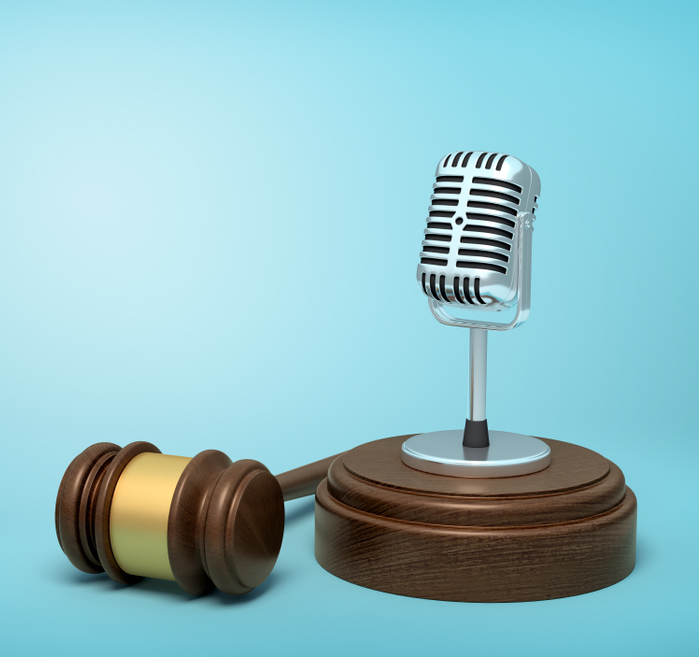Pastor can't sue for free speech violation after city council cut his mic, 11th Circuit rules

Image from Shutterstock.
A federal appeals court has tossed a lawsuit filed by a pastor who claimed that a city council in Jacksonville, Florida, violated his First Amendment rights when it cut off his microphone during his invocation.
The 11th U.S. Circuit Court of Appeals at Atlanta ruled against Pastor Reginald L. Gundy in a Sept. 30 opinion that found that the invocation was government speech.
“When government speaks, it is not barred by the free speech clause from determining the content of what it says,” the appeals court said, using language from a U.S. Supreme Court case that upheld a state’s rejection of a Confederate flag license plate.
Gundy was a senior pastor at the Mount Sinai Missionary Baptist Church in Jacksonville. He was invited to give the invocation before the council began its meeting in March 2019. Each city council member is given a chance to invite a pastor to appear. A city council member running for mayor invited Gundy, who had supported her campaign.
Gundy “started with a direct appeal to a higher power” and then “transitioned to levying criticisms against the city’s executive and legislative branches,” the 11th Circuit said.
The city council president, Aaron Bowman, interrupted Gundy and asked him to make “a spiritual prayer,” but Gundy “did not change the tenor of the invocation,” the appeals court said. Bowman cut off Gundy’s microphone, and Gundy finished his invocation without it.
Bowman later tweeted that he never envisioned a council member “stooping so low to find a pastor that would agree to such a sacrilegious attack politicizing something as sacred as our invocation.”
Gundy sued, alleging violations of his free speech and free exercise rights under the First Amendment and the Florida Constitution. The lawsuit named Bowman and the city as defendants.
Bowman testified in a deposition that Gundy’s invocation had “crossed the political lines” by attacking the city council and the current mayor. The invocation “was not a blessing” of the council, Bowman said.
The appeals court affirmed dismissal of the suit, holding that Gundy’s invocation was government speech. Such speech can be challenged in an establishment clause claim but not on the free speech or free exercise grounds asserted by Gundy, the 11th Circuit said.
The appeals court looked at three factors in reaching its conclusion: history, endorsement and control. All supported the conclusion that Gundy’s invocation was government speech, the 11th Circuit said. More specifically, the appeals court said:
• Legislative invocations are embedded in the country’s history and traditions.
• The city council organized the invocation, provided the venue and selected the speakers.
• The city council exercised control over the message spoken by selecting the speaker.
The 11th Circuit noted that its analysis under the Florida Constitution would be the same because Florida courts treat its free speech provisions as coextensive with the federal Constitution.
The case is Gundy v. City of Jacksonville, Florida.
The opinion author is Judge Barbara Lagoa, who was said to be a top contender for a Supreme Court nomination by former President Donald Trump.
Hat tip to Law360 and Jacksonville.com, which had coverage of the decision.



